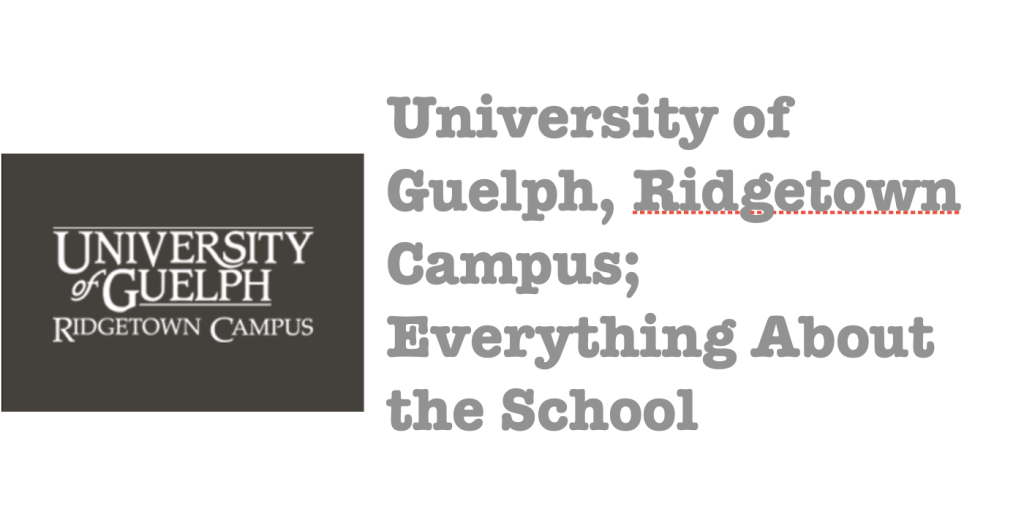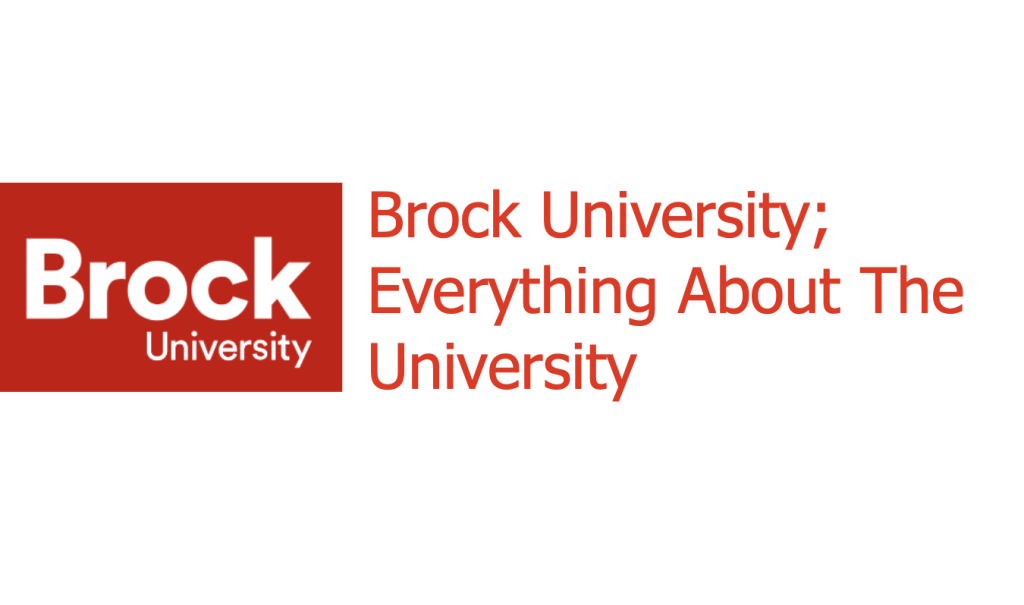Admissions Guide — Pursuing higher education at the University of Toronto (U of T) is a transformative endeavor that promises not only academic excellence but also personal and professional growth. The admissions process serves as the gateway to this exceptional educational journey. In this comprehensive guide, we will delve into the intricacies of the U of T admissions process, providing you with a step-by-step overview, application requirements, deadlines, and invaluable tips for crafting an application that stands out in the competitive landscape of higher education.
Table of Contents
Research Your Desired Program: Setting the Course for Success
The foundation of a successful application lies in choosing a program that aligns with your academic passions and future aspirations. U of T offers an extensive range of programs across diverse disciplines, from humanities to sciences, engineering to arts.
Conduct thorough research to identify the program that resonates with your interests, career goals, and values. Delve into the program’s curriculum, faculty expertise, and unique opportunities it offers to students. Check from the official site of U of T for the programs they offer. The next thing in the admissions process of University of Toronto is to check the application requirements.
Read Also: Everything You Need to Know About University of Toronto
University of Toronto Application Requirements: Assembling the Pieces
U of T’s application process requires a meticulous assembly of various components that collectively provide a comprehensive view of your qualifications and potential. These components typically include:
- Online Application: Initiate your application journey by creating an account on U of T’s online application portal. This portal will guide you through the process, allowing you to submit your application and required materials.
- Transcripts: Official transcripts from all educational institutions you’ve attended are essential. These transcripts provide an overview of your academic journey, showcasing your academic strengths and accomplishments.
- Test Scores: Depending on your chosen program and your background, standardized test scores might be required. These scores could include the SAT, ACT, or English language proficiency tests such as TOEFL or IELTS for international students. Carefully review the program’s specific requirements to determine whether these scores are mandatory.
- Letters of Recommendation: These letters offer insights into your character, work ethic, and potential for success. Select recommenders who can eloquently attest to your academic abilities and personal qualities. Consider a mix of teachers, counselors, and professionals who can provide a well-rounded perspective.
- Statement of Purpose/Personal Statement: Craft a compelling essay that not only outlines your motivations for pursuing the program but also underscores how your background, experiences, and aspirations align with the values and offerings of U of T. This is your opportunity to showcase your uniqueness and stand out.
- Resume/CV: Compile a detailed resume or CV that provides a comprehensive overview of your academic achievements, extracurricular involvements, volunteer experiences, internships, and any other relevant activities. A well-organized resume demonstrates your multifaceted capabilities.
- Portfolio (if applicable): Creative programs may require a portfolio showcasing your artistic work, design projects, or writing samples. The portfolio serves as tangible evidence of your creative prowess and skills.
Read Also: How To Apply University of Toronto
Application Deadlines for Admissions: Timing Your Application
Understanding application deadlines is critical to ensure a smooth submission process. U of T typically operates with the following deadlines:
- Early Admission: Some programs offer an early admission option with deadlines often set in November. Applying early can confer certain advantages, such as higher acceptance rates and the possibility of securing slots before they fill up.
- Regular Admission: The primary application deadline usually falls in January. It’s recommended to submit your application well ahead of this deadline to prevent last-minute complications.
- International Applicants: If you’re an international student, it’s advisable to apply early to allow ample time for visa processing, scholarship applications, and other logistical arrangements.
Tips for a Successful Application for Admissions: Crafting Your Unique Narrative
Crafting a successful application requires a strategic approach that showcases your individuality and potential. Here’s a roadmap to bolster your application:
- Commence Early: Initiate the application process well in advance to allow sufficient time for collecting materials, drafting essays, and finalizing documents. An early start minimizes stress and maximizes quality.
- Convey Passion: Infuse your essays and personal statement with authentic enthusiasm for your chosen field of study and U of T itself. Articulate not only what you want to learn but also how you intend to contribute to the academic community.
- Highlight Achievements: Your application is the canvas upon which you paint your accomplishments. Whether in academics, sports, arts, or community engagement, emphasize your achievements by quantifying their impact and illustrating how they reflect your potential.
- Personalization is Key: Customize each application to the specific program and institution. Clearly communicate why U of T is the ideal environment for your academic journey and how your aspirations align with its offerings.
- Powerful Recommendations: Thoughtfully select recommenders who can provide detailed insights into your character, capabilities, and potential. A strong letter of recommendation can significantly enhance your application.
- Refine and Proofread: Present polished essays and documents that are free of grammatical errors and typos. The attention you invest in editing reflects your commitment to excellence.
- Be Authentic: The admissions committee seeks genuine individuals who will contribute uniquely to the university community. Be yourself; authenticity resonates and distinguishes you from other applicants.
Read Also: A comprehensive overview of the University of Toronto
Financial Considerations: Planning for Affordability
Navigating the financial aspects of higher education is a crucial step in your admissions journey. The cost of tuition, living expenses, and other associated fees can significantly impact your decision-making process. U of T offers various resources to help you plan for affordability:
- Scholarships and Grants: U of T provides an array of merit-based scholarships, grants, and awards for both domestic and international students. These financial incentives are often awarded based on academic excellence, leadership potential, and specific achievements. Carefully review the eligibility criteria for each scholarship opportunity and prepare to submit any required documentation.
- Financial Aid Programs: U of T is committed to ensuring that talented individuals have access to higher education regardless of their financial circumstances. The university offers financial aid programs that consider factors beyond academic achievements, such as financial need and personal circumstances.
- Work-Study Opportunities: U of T provides students with part-time work opportunities on campus through its work-study program. This program not only helps you financially but also offers valuable work experience that can enhance your resume and skillset.
- External Funding Sources: Beyond U of T’s offerings, there are various external funding sources, including government grants, private scholarships, and sponsorships. Research these options early and thoroughly to identify opportunities that align with your background and goals.
Follow Up and Stay Informed: Navigating the Communication Process
Once you’ve submitted your application, staying informed and maintaining effective communication is essential:
- Check Your Email Regularly: U of T might reach out to you for additional information, updates, or notifications. Make it a habit to check your email regularly, including your spam or junk folder, to ensure you don’t miss any crucial messages.
- Respond Promptly: If U of T requests further information or documentation, respond promptly and accurately. Timely communication demonstrates your commitment and professionalism.
- Interviews and Additional Requirements: Some programs may require interviews, portfolios, or supplementary documentation. Stay informed about your program’s specific requirements and deadlines to ensure you fulfill all requests.
- Admitted Student Portal: Once you’re accepted, U of T might provide you with access to an admitted student portal. This portal serves as a hub for important information, such as housing options, orientation details, and enrollment steps. Be sure to stay engaged with this resource.
Patience and Positivity: Navigating the Waiting Period
The waiting period after submitting your application can be both exciting and challenging. Here’s how to navigate this phase with patience and positivity:
- Focus on Alternatives: While waiting for admission decisions, consider applying to other institutions as a backup plan. Diversifying your options ensures that you have alternatives if your U of T application doesn’t yield the desired outcome.
- Explore Housing and Logistics: If you’re an international student, use this time to research housing options, explore the campus virtually, and familiarize yourself with Toronto’s resources and services.
- Stay Engaged: Some programs might invite you to participate in virtual events, webinars, or online communities. These platforms offer insights into the U of T experience and allow you to connect with potential peers and faculty.
- Practice Self-Care: The anticipation and uncertainty can be emotionally taxing. Practice self-care by engaging in activities you enjoy, maintaining a healthy routine, and seeking support from friends, family, or mentors.
Conclusion: Embrace the Journey Ahead
In conclusion, the University of Toronto’s admissions process is an integral part of your educational voyage. By conducting comprehensive research, meticulously assembling application materials, and crafting an application that embodies your passion and potential, you set the stage for a transformative academic experience. The journey toward U of T is a reflection of your commitment to excellence and growth.
As you embark on this path, remember that your application is more than a collection of documents—it’s a manifestation of your aspirations, character, and readiness to contribute to the U of T community. Good luck on this exciting chapter of your educational journey!



